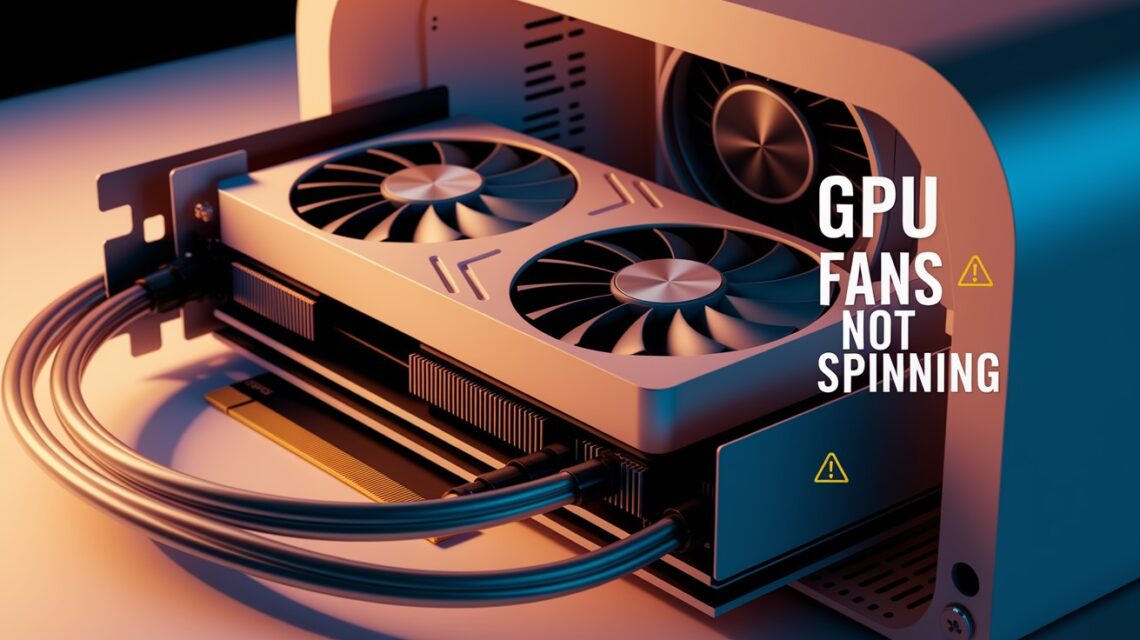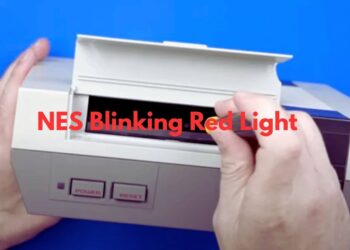Your graphics card fans aren’t spinning, and your computer is getting hot. This is a common problem that can cause serious damage if ignored.
You’re in the right place. This article covers the most frequent reasons why GPU fans stop working and gives you clear, step-by-step fixes you can try at home.
We understand how frustrating this issue can be. When your expensive graphics card isn’t cooling properly, every minute counts. That’s why we’ve tested these solutions on multiple GPU models and compiled only the methods that work.
You’ll learn why GPU fans stop spinning, quick diagnostic checks, easy fixes you can do yourself, and when to seek professional help.
Most fan issues have simple solutions. By the end of this guide, you’ll know exactly how to get your GPU fans spinning again and keep your system running cool and stable.
When GPU Fans Should and Shouldn’t Spin
Your GPU fans aren’t broken if they stay still while browsing. This is normal for modern graphics cards.
Zero RPM Mode is Normal
New GPUs have smart cooling systems. Fans stay off when your computer isn’t working hard. This saves power and cuts noise.
Temperature Triggers Fan Activity
Fans start spinning when your GPU hits 50-60°C. Below this temperature, they stay off. Above 70°C, they spin faster.
Heavy Tasks Wake Up Fans
Light work, like web browsing, won’t trigger fans. But intensive tasks will:
- Gaming at high settings
- Video editing
- 3D rendering
When to Worry
Normal: Fans off during light use, fans on during gaming.
Problem: The GPU reaches 80°C+ and the fans never start. Your computer might shut down to protect itself.
If fans don’t spin when your GPU gets hot or works hard, you have a real issue that needs fixing.
Primary Causes of Non-Spinning GPU Fans
Most GPU fan problems are software issues. The good news? These are usually easy to fix.
Software and Configuration Issues
- Fan Curve Problems
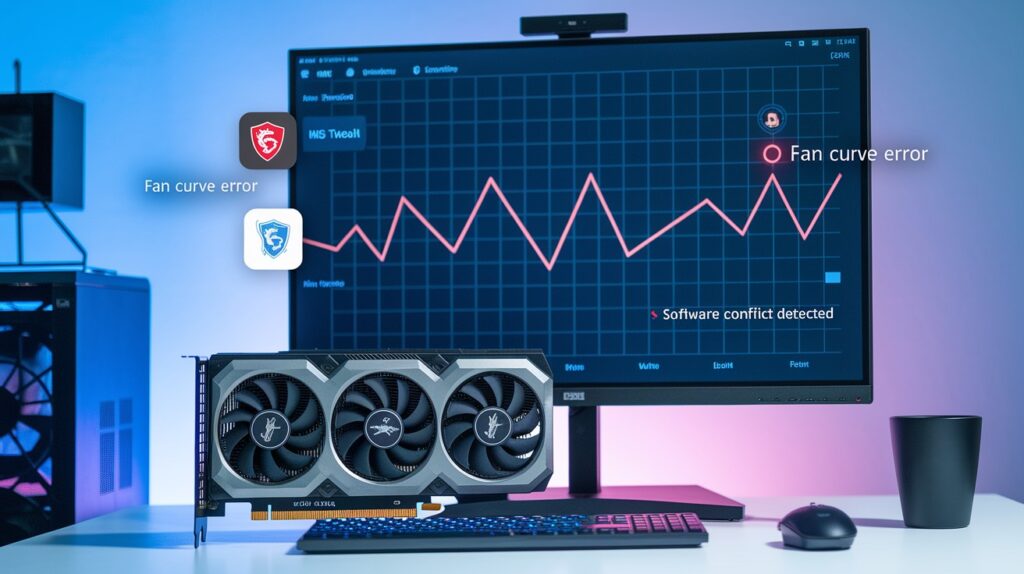
Your GPU uses fan curves to control when fans spin. These curves can break and tell fans to never start or wait until your GPU is dangerously hot.
Common causes:
- Software crashes
- Power outages
- Failed updates
Multiple programs fighting for control cause chaos. If you run MSI Afterburner, GPU Tweak, and manufacturer software together, they’ll conflict.
Solution: Pick one program. Uninstall the rest. Reset to factory defaults when possible.
- Driver-Related Issues
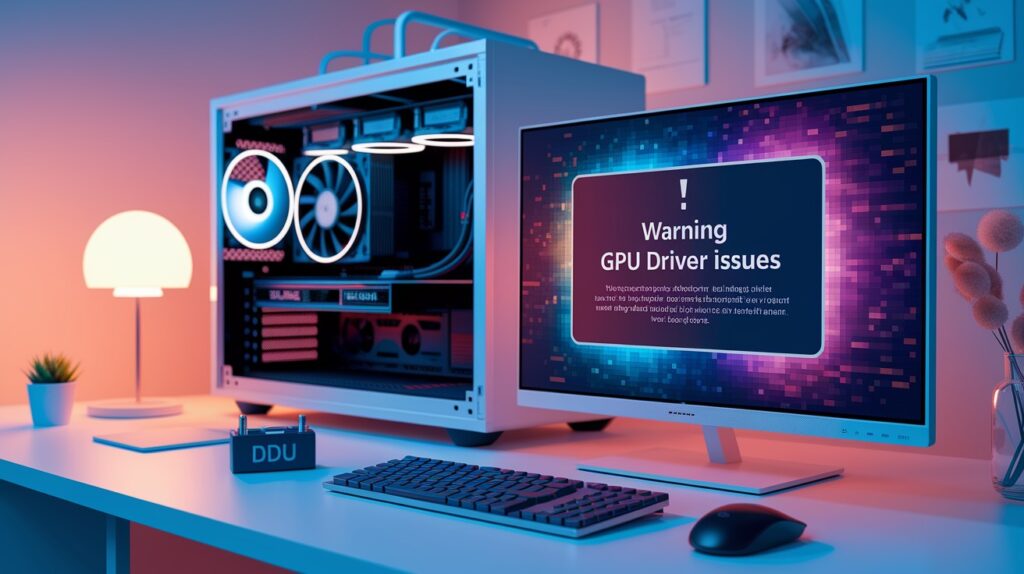
Bad drivers break everything. Including your GPU fans.
Signs of driver problems:
- Fans worked fine, then suddenly stopped
- Recent Windows updates
- Graphics glitches alongside fan issues
Solution: Use DDU (Display Driver Uninstaller) for complete driver removal, then install fresh drivers. Regular uninstalls leave broken pieces behind.
Hardware Connection Problems
Physical issues cause many fan failures. These are harder to spot but easier to fix.
1. Power Supply Issues
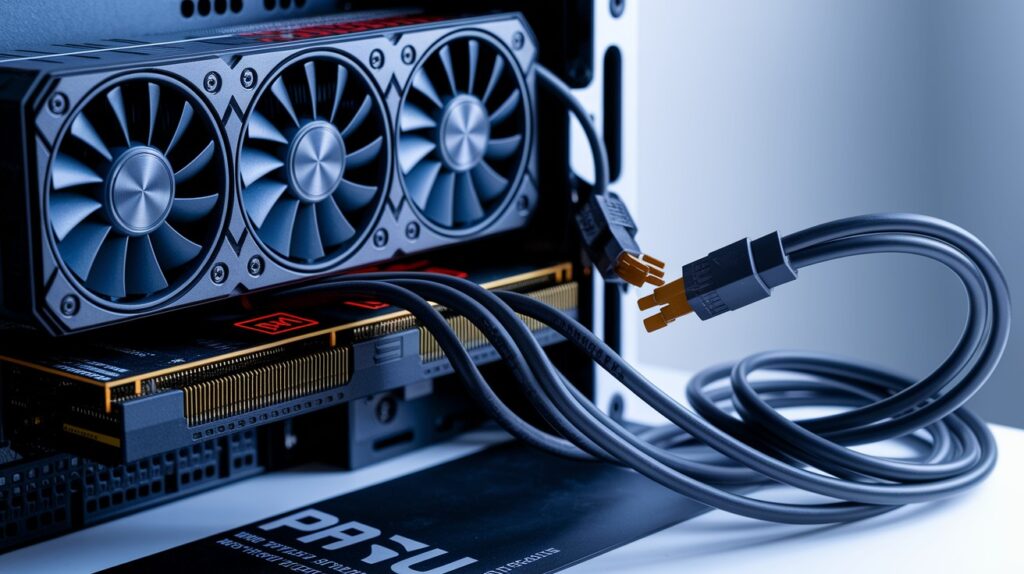
Your GPU fans need steady power. When power delivery fails, fans stop spinning.
Common power problems:
- Underpowered PSU: Can’t supply enough juice to fans under load
- Loose PCIe connections: 6-pin or 8-pin power plugs wiggle free over time
- Cable extensions: Third-party cables create unstable power delivery
Quick fixes: Push power connectors until they click. Remove cable extensions. Check if your PSU meets GPU power requirements.
2. Physical Obstructions
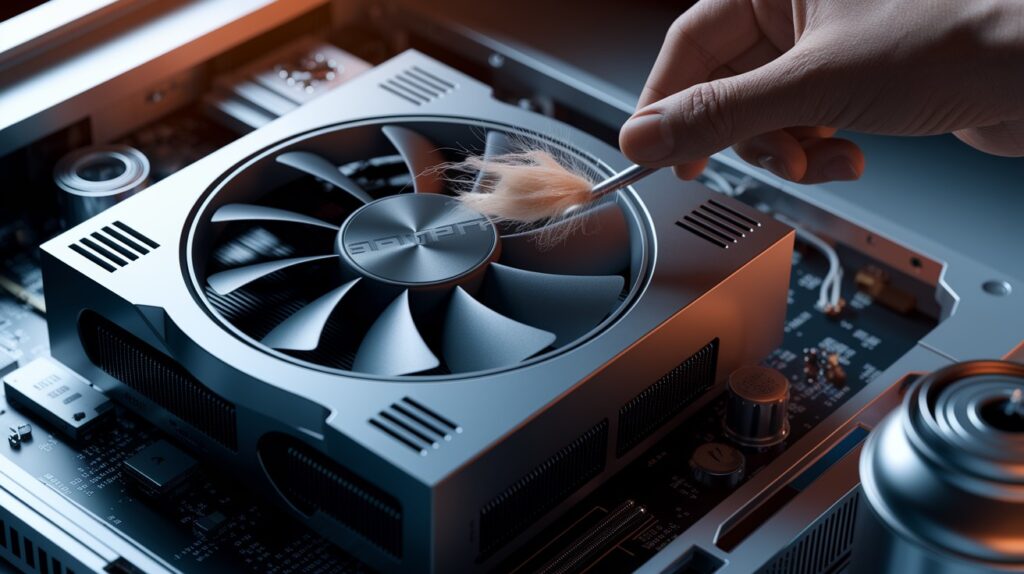
Something’s blocking your fans. This happens more than you think.
Dust and debris build up on fan blades and bearings until fans can’t move. Pet hair wraps around fan hubs. Sticky residue from smoking creates problems.
Foreign objects like loose screws, cable ties, or stray wires can jam fans instantly.
Quick test: With your computer off, gently spin fans by hand. They should move freely without grinding or catching.
Solution: Clean with compressed air. Remove any objects blocking fan movement.
Hardware Failure
Sometimes fans just die. Like any mechanical part, GPU fans have a limited lifespan.
1. Burnt Out Fan Motors
Fan motors wear out from constant use. Common causes include age (3-5 years), electrical surges, bearing wear, and manufacturing defects.
Once the motor dies, software fixes won’t help.
2. Motor Symptoms
Listen for warning signs:
- Grinding sounds (failing bearings)
- Squeaking (lack of lubrication)
- Buzzing (electrical problems)
- Clicking (damaged blades)
Touch test: Failed motors often feel hot to the touch, even when not spinning. No sound at all can also mean complete failure.
3. Replacement Feasibility
Fan replacement is complicated. Opening your GPU voids most warranties. Check warranty status first – RMA if still covered.
Requirements:
- Soldering skills (some models)
- Tiny screws and delicate parts
- Exact fan specifications
- Thermal paste reapplication
Cost reality: Replacement fans cost $20-50. Professional repair runs $100+. Sometimes buying a new GPU makes more sense.
If you’re not comfortable with electronics repair, don’t attempt this yourself.
Step-by-Step Troubleshooting Guide
Let’s fix your GPU fans systematically. Start simple, then move to complex solutions.
Visual Inspection (Power Off Required)
Turn off your computer first.
Check that all power cables connect firmly to your GPU and power supply. Push connectors until they click.
Spin each fan gently with your finger. They should rotate freely without grinding.
Look for visible blockages like dust, pet hair, or loose cables touching fans.
Software Testing
Power on for these tests.
Open GPU software and set fans to 100% speed manually. If fans spin, it’s a software problem. If not, it’s hardware.
Monitor temperature while gaming. Temperatures above 80°C without fan activity confirm a problem.
Run a demanding game. Fans should activate automatically when your GPU heats up.
Progressive Solutions
Software Fixes
Reset fan curves to factory defaults in your GPU control software.
Use DDU for complete driver removal, then install fresh drivers from the manufacturer.
Restart your system – simple reboots fix temporary glitches.
Hardware Solutions
Clean with compressed air – blow out dust from fan blades and motor housing using short bursts.
Reseat all cables – disconnect and firmly reconnect GPU power cables at both ends.
Test in another system if possible. If fans work elsewhere, your system has the problem. If fans still don’t work, your GPU needs repair.
Conclusion
Most GPU fan problems have simple fixes. Start with software solutions like resetting fan curves and reinstalling drivers. These cost nothing and solve most issues.
Hardware problems need physical fixes. Clean out dust, check power connections, and test components. Most people can handle these basic repairs safely.
Know when to stop. If your GPU is still under warranty, don’t open it. Contact the manufacturer instead. Failed motors and complex repairs require professional help.
Temperature monitoring is key. Keep watching your GPU temps even after fixing fans. Overheating damages expensive components permanently.
Your graphics card should run cool and quietly when working properly.
Frequently Asked Questions
Why do my GPU fans spin for a few seconds then stop when I boot my computer?
This is normal behavior. Modern GPUs test fans during startup, then stop spinning until the card reaches operating temperature thresholds.
My GPU fans won’t spin even when gaming – is this dangerous?
Yes, this is dangerous. Without cooling, your GPU will overheat and throttle performance or shut down to prevent permanent damage.
Can I replace just one fan if only one isn’t spinning?
Usually yes, but it’s recommended to replace both fans simultaneously to ensure balanced cooling and prevent future asymmetric failures.
Should GPU fans always spin at the same speed?
No, fans should adjust speed based on temperature and load. They may spin at different speeds if individually controlled.
How hot is too hot for a GPU when fans aren’t working?
Most GPUs throttle around 83-87°C and shut down around 95°C. Sustained temperatures above 80°C without cooling indicate immediate attention is needed.

